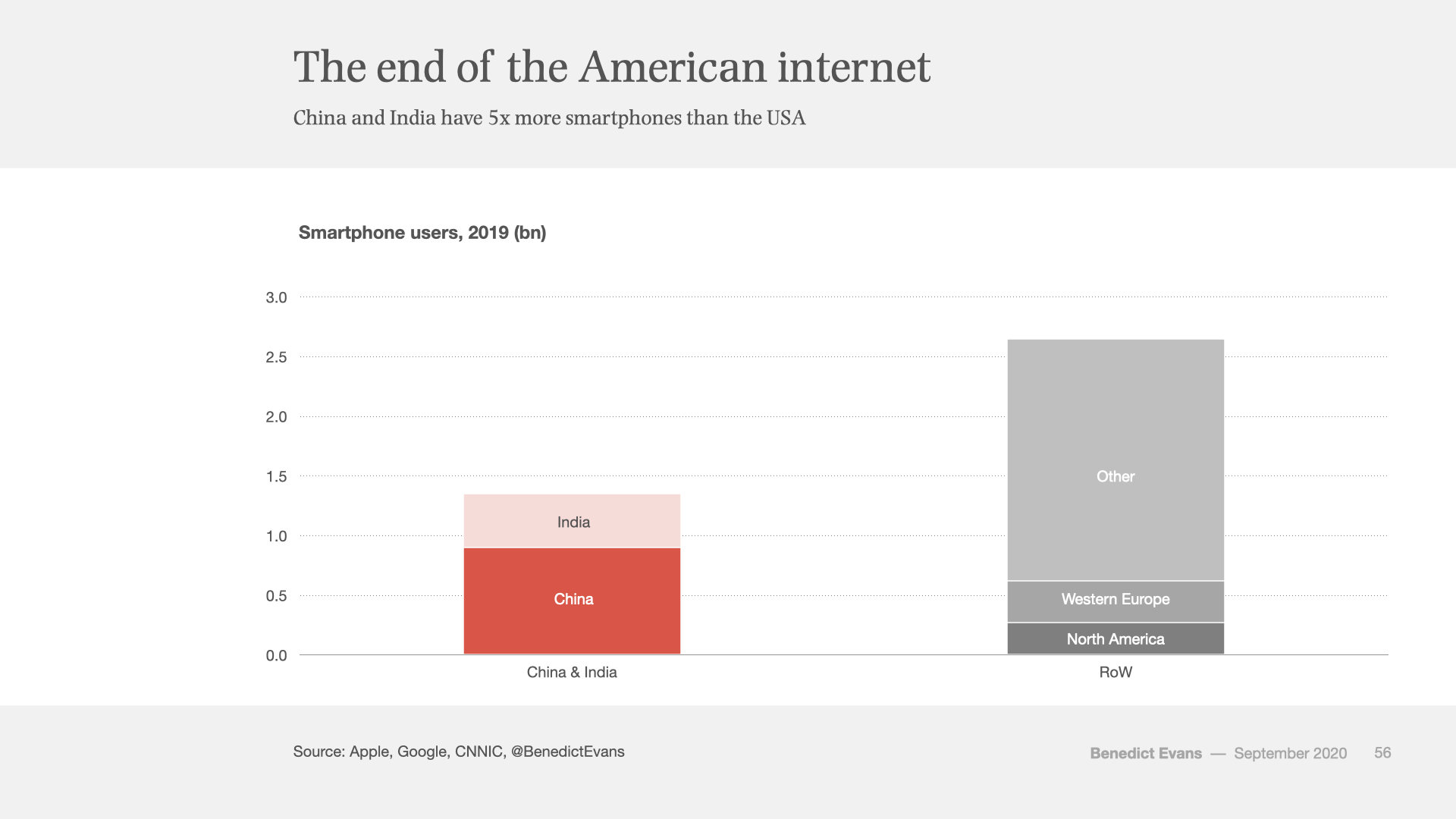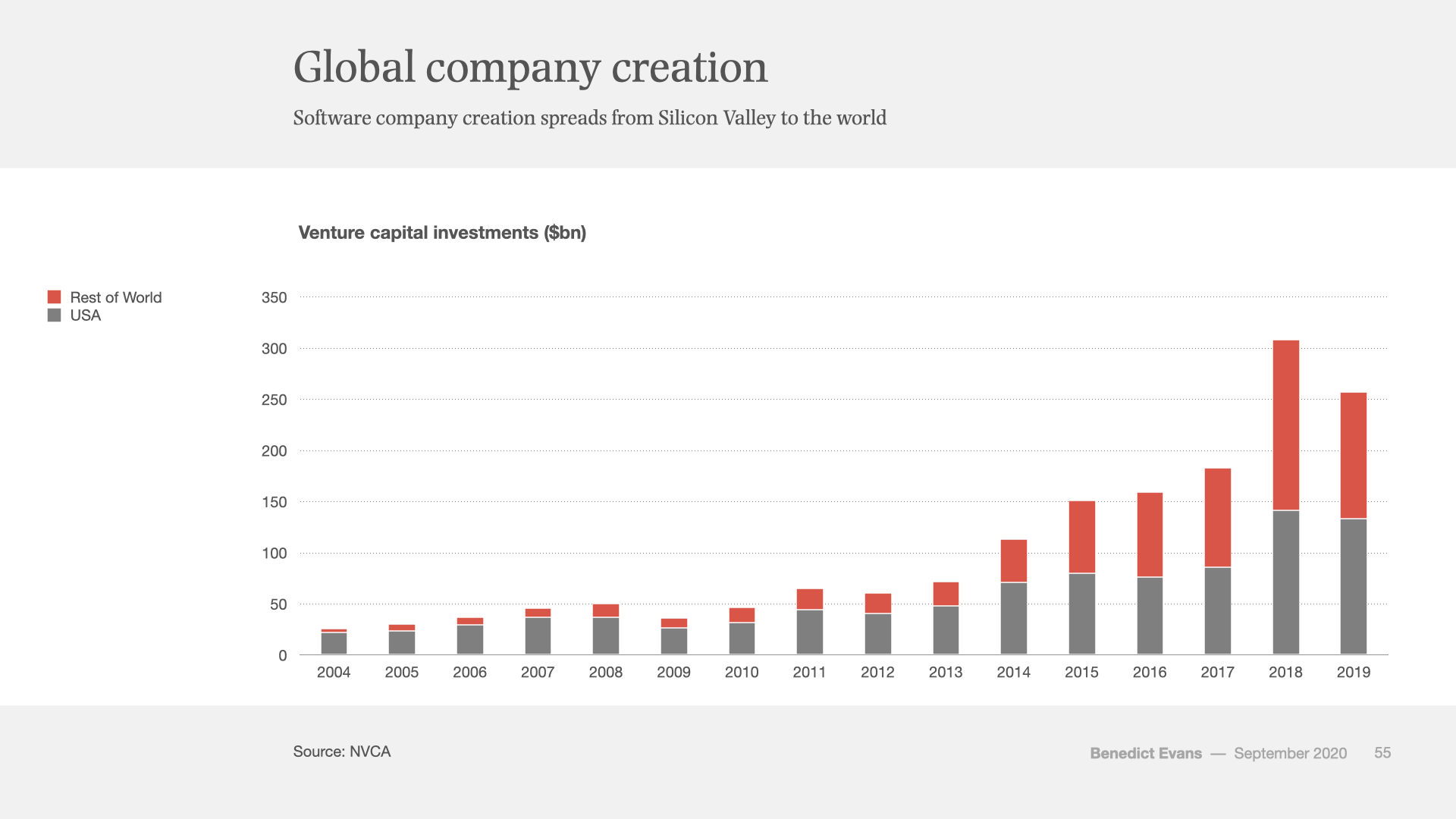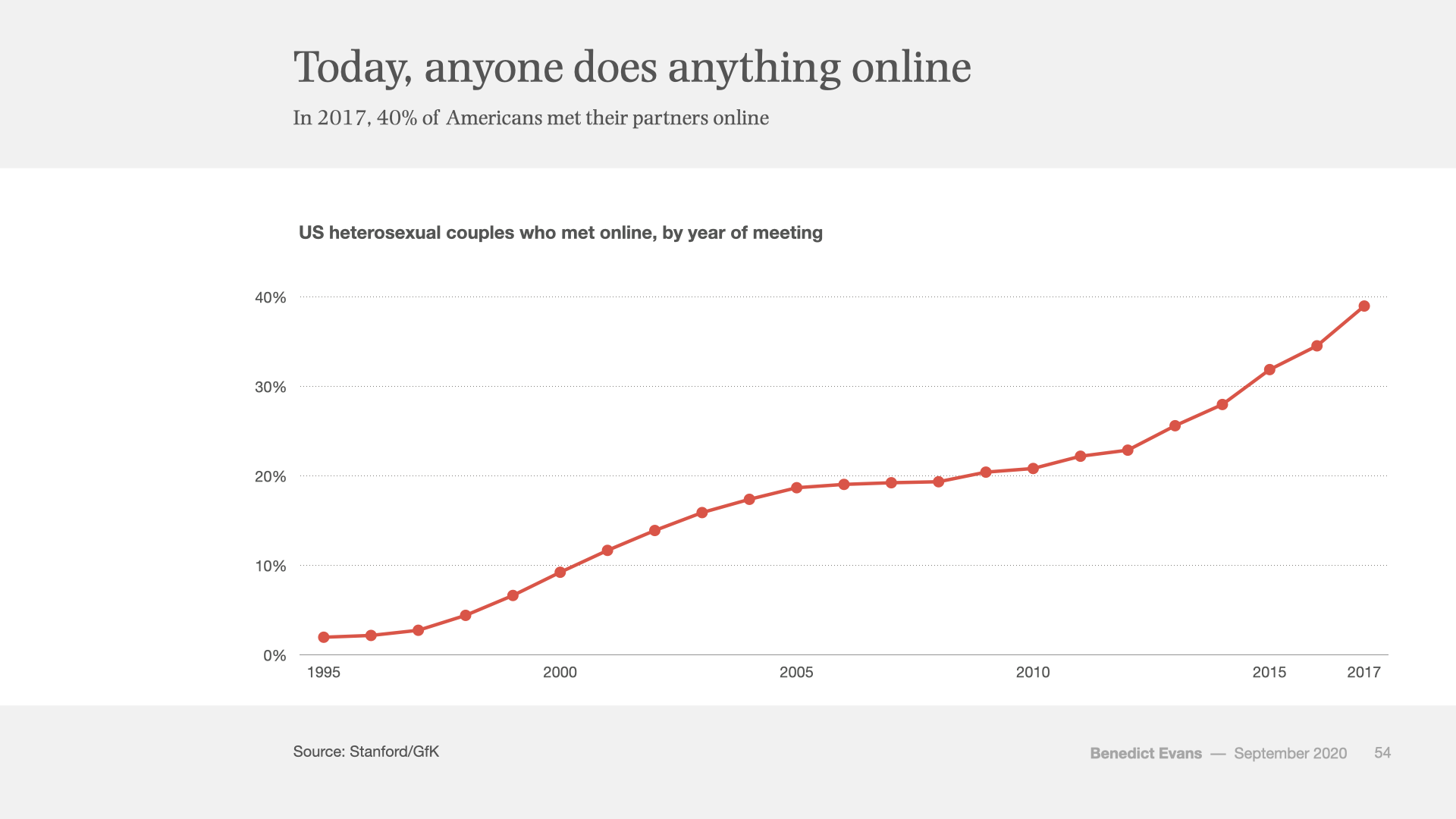The end of the American internet
When Netscape launched in 1994 and kicked off the consumer internet, there were maybe 100m PCs on earth, and over half of them were in the USA. The web was invented in Switzerland, and computers were invented in the UK, but the internet was American. American companies set the agenda and created most of the important products and services, and American attitudes, cultures and laws around regulation and speech dominated.
This is not quite so true anymore. 80-90% of internet users are now outside the USA, there are more smartphone users in China than in the USA and western Europe combined, and the creation of venture-based startups has gone global.
Meanwhile, of course, the internet became vastly more important. In the last decade it has gone from being interesting and exciting but not really an important part of most people’s lives to being a central part of society. This is my favorite way to illustrate this - by 2017, almost half of new (straight) relationships in the USA started online.
This has two pretty basic sets of consequences.
First, as I discussed in some detail here, technology is becoming a regulated industry, if only because important and specialised industries are always regulated. That regulation will not only be determined by the USA. Other countries have their own laws, cultures and constitutions, and so we are entering a period of increasing regulatory expansion, overlap and competition from different jurisdictions, from the EU and UK to Singapore or Australia and, of course, China.
Second, you can no longer assume that the important companies and products themselves are American.
Both of these are captured in Tiktok. This is the first time that Americans have really had to deal with their teenagers using a form of mass media that isn’t created in their country by people who mostly share their values. It’s from somewhere else. That’s compounded by the fact that the ‘somewhere else’ is China, with all of the political and geopolitical issues that come with that, but I’d suggest that the core, structural issue is that it’s foreign. This is, of course, a problem that the rest of the world has been wrestling with since 1994, but it comes as something of a shock in Washington DC. There’s an old joke that war is how God teaches Americans geography - now it’s regulation.
TikTok is introducing Americans to a question that Europeans have struggled with for 20 years: a lot of your citizens might use an Internet platform created somewhere that doesn’t know or care about your laws or cultural attitudes and won’t turn up to a committee hearing
— Benedict Evans (@benedictevans) October 9, 2019
There are many questions that flow out of this. One, for example, is how far and how many Chinese consumer internet companies will spread globally as opposed to being constrained by their domestic environment (this would be the ‘Galapagos Effect’ often suggested of Japanese tech. Tiktok worked, but WeChat failed). Another is how many ‘unicorns’ come from Europe - how fast does its population, economic, scientific and educational base produce a proportionate number of big tech companies (or if not, why not?). Yet another is the ‘Is Silicon Valley Over?’ debate, which goes back decades - when my old colleague Marc Andreessen arrived there in the early 1990s, he thought the whole thing was over and he’d missed it.
You can argue about the details of these all day, but it does seem clear that we should just presume a global diffusion of software creation and internet company creation. It doesn’t really matter if Silicon Valley ends up as 25% or 75% of the next 100 important companies - America doesn’t have a monopoly on the agenda any more.
Hence, there are all sorts of issues with the ways that the US government has addressed Tiktok in 2020, but the most fundamental, I think, is that it has acted as though this is a one-off, rather than understanding that this is the new normal - there will be hundreds more of these. You can’t one-at-a-time this - you need a systematic, repeatable approach. You can’t ask to know the citizenship of the shareholders in every popular app - you need rules that apply to everyone. Today, the rules come from Apple, or California, both of which are increasingly becoming America’s privacy regulators by default. But they will also come from the EU, which is increasingly writing laws that, intentionally or not, change how American companies do business in America, and the more different rules we have in different places, the more fragmented and complicated things get. Regulation is an export industry, and a competitive industry.


